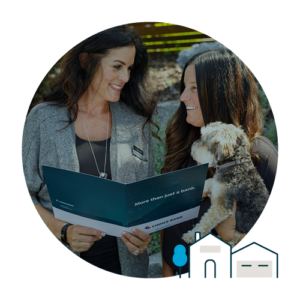What Does It Really Cost to Buy a Home?
Getting pre-approved for a mortgage is an essential first step in your homebuying process. Your pre-approval enables you to make more informed decisions as you search for a home and gives you added credibility when you make an offer.
But before you rush to view the hottest listings, it’s crucial that you understand ALL of the costs associated with your new home purchase. There’s more to it than just paying off your loan! Whether you’re buying a home for the first time or could use a refresher, here’s what you need to know.
Up Front Costs
Sure, you know about down payments and closing costs, but what about earnest money? And where do those closing costs go, exactly? Here’s a quick look at those payments.
Down Payment: The amount you put down — typically ranging from 0% to 20% — affects how much you end up borrowing, how much your monthly payments will be, and ultimately how much you pay in interest. In some cases, you may be able to use gift funds, and down payment assistance programs exist, as well.
Earnest Money: Sometimes called a “good faith deposit,” the earnest money is due once the seller has accepted your offer — so be sure you have it saved up and accessible before you start house hunting! The earnest money shows you’re serious about buying the home and is usually between 1% and 5% of the purchase price. The funds are held in an escrow account until the transaction is finalized, at which point they will go toward your down payment or closing costs.
It is possible to lose your earnest money deposit if the sale doesn’t go through. Here are situations to avoid so you don’t lose that cash:
- Not meeting deadlines. Your contract most likely outlines when certain milestones need to be met, such as completion of inspections or finalizing your loan. The seller can consider you in breach of contract and cancel the deal.
- Agreeing that the deposit is nonrefundable in your contract. You’ll need to discuss this with your agent.
- Waiving contingencies that protect your interest in the home.
- Backing out of the deal for a reason not covered by your contingencies.
Closing Costs: A one-time payment due when you close your loan, these typically account for about 2% to 5% of the purchase price, so it’s important to save for them ahead of time. Everyone’s closing costs vary slightly, but below are a few examples of what might be included:
- Appraisal Fee: Paid to the appraiser to estimate the fair market value of your home.
- Discount Points: Paying these can lower your mortgage interest rate.
- Origination Fee: Charged to the lender for originating the loan.
- Recording Fees: Paid to make your real estate purchase a part of public record.
- Title Service Fees: These cover the title search, examination, and insurance.
- Transfer Taxes: A tax imposed on transferring the title from the seller to the buyer.
After Your Loan Closes
You pay your monthly mortgage bill as one lump sum, but it actually has four parts: principal, interest, taxes, and insurance.
- Principal: Goes toward your loan amount.
- Interest: Fee for borrowing money from your lender. This will make up the bulk of your payments early on.
- Property Taxes: A percentage of your home’s assessed value that gets paid to your local government.
- Insurance: Includes homeowners insurance and may also include mortgage insurance, which is required is your down payment is less than 20% or if you choose certain loan types.
Taxes and insurance are typically held in an “escrow” or “impound” account and paid on your behalf by your servicer, although you can request not to have these funds held for you, depending on your loan type. The payments are reviewed yearly and adjusted as necessary. Having an escrow account is highly recommended, as it helps to ensure you’ll have the funds to pay your taxes and insurance on time.
Other Fees and Expenses
Be sure you also save for:
- Moving costs
- Annual maintenance and repairs
- Utility bills
- Homeowners’ Association (HOA) fees (if applicable)

Through our versatile home loan options, Choice can help you capture the pride of a new home. Our team of experienced home lenders specializes in everything from pre-qualification to your final payment. We’re here for you every step of the way.
Talk to a home loan expert!



